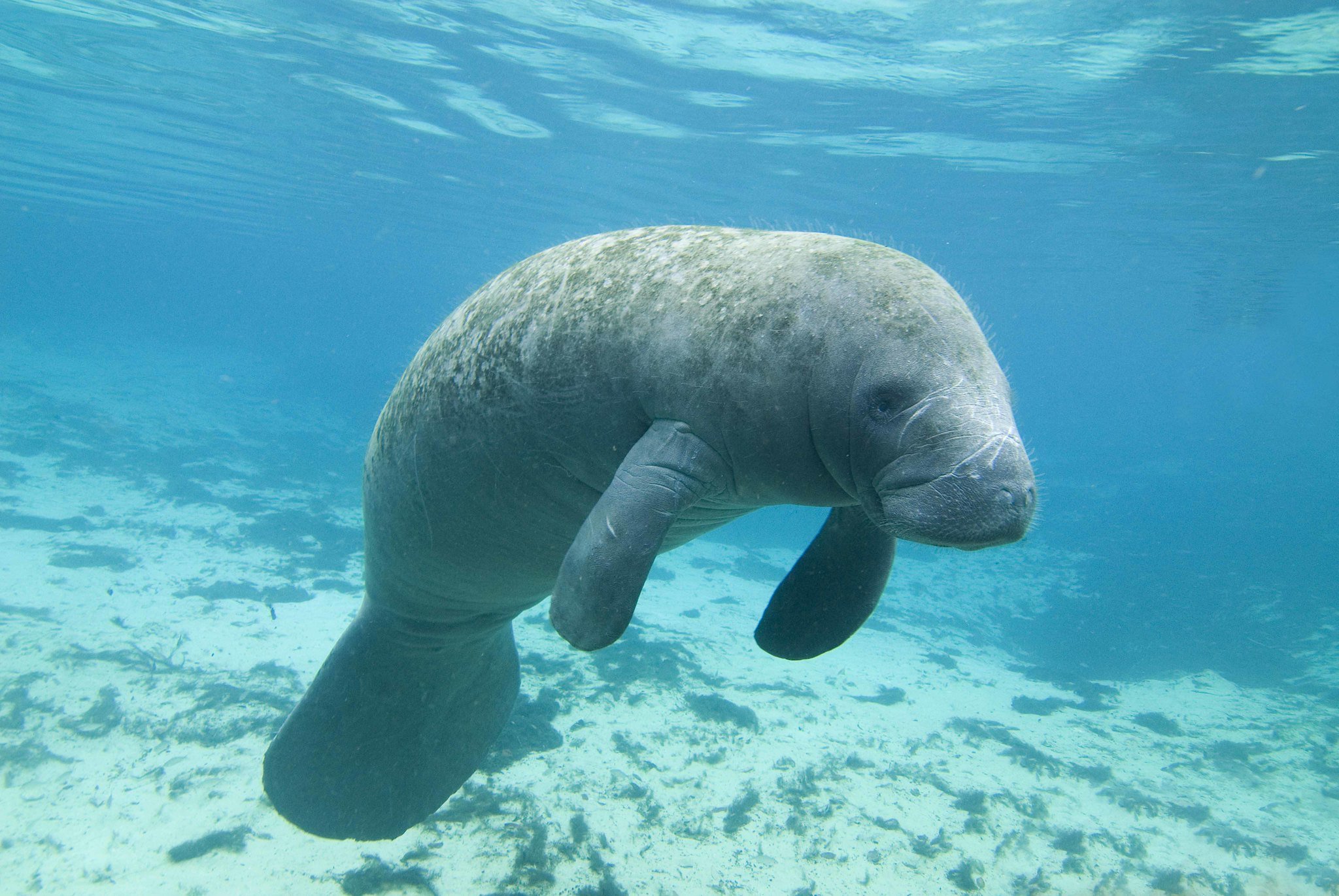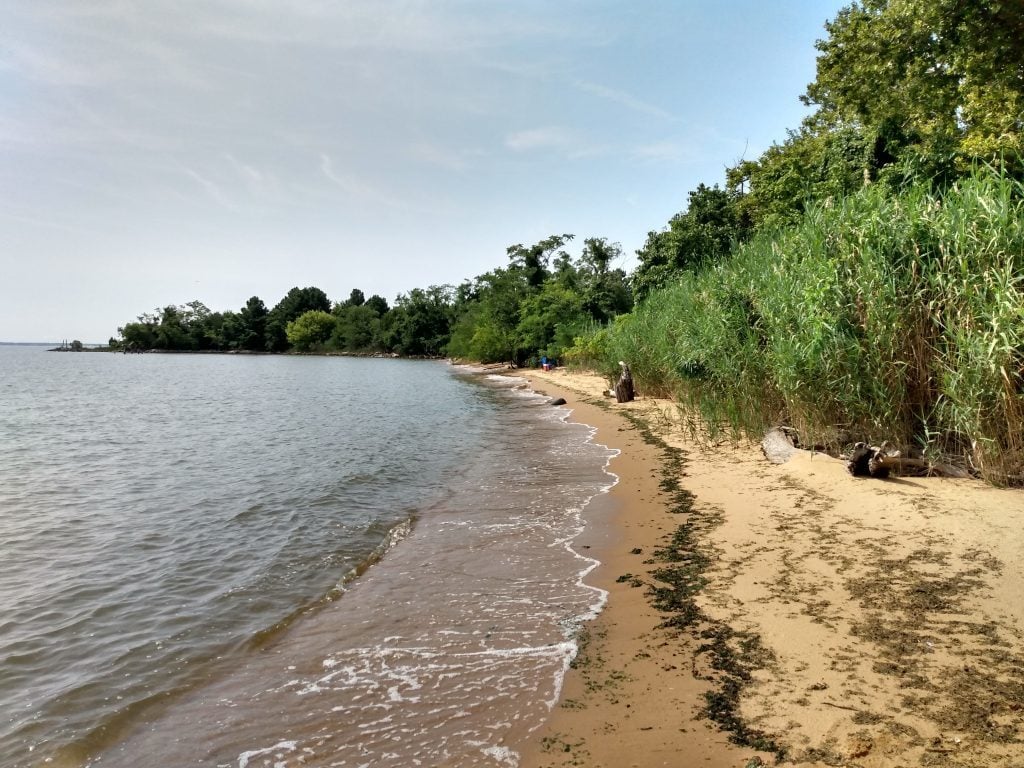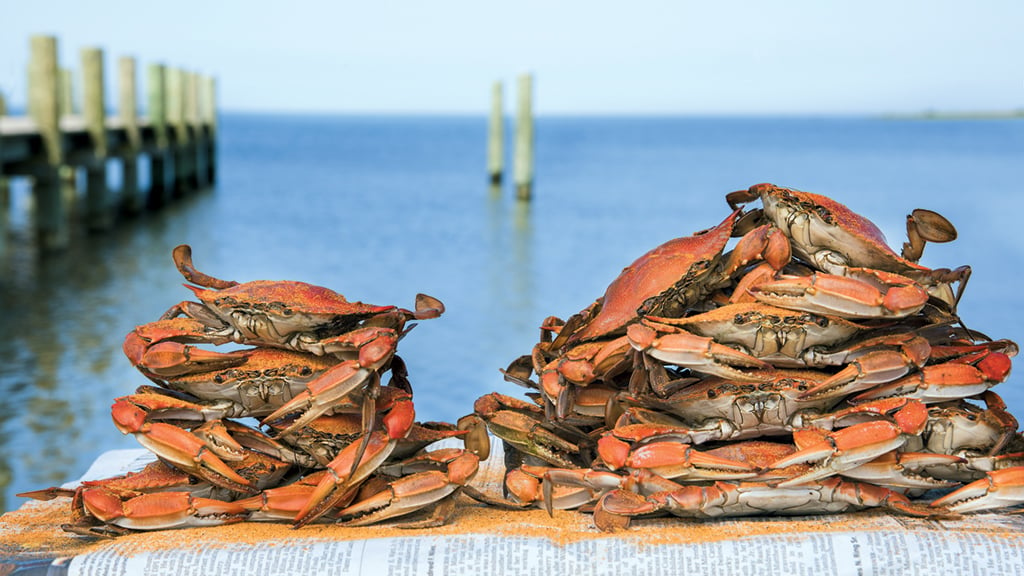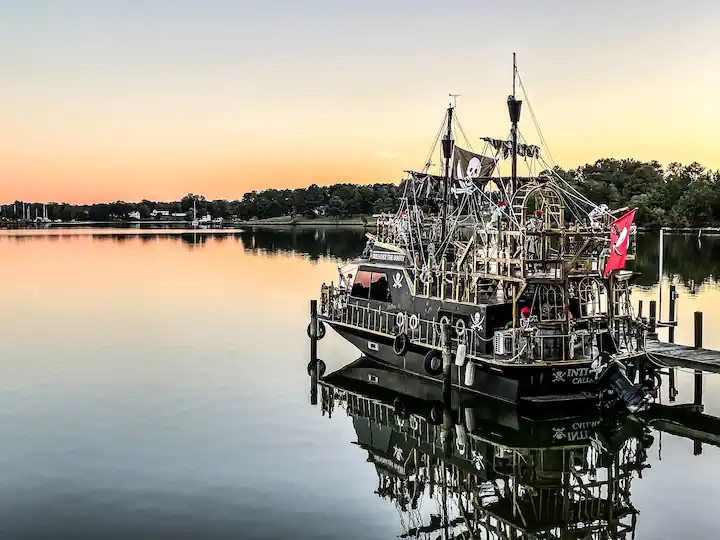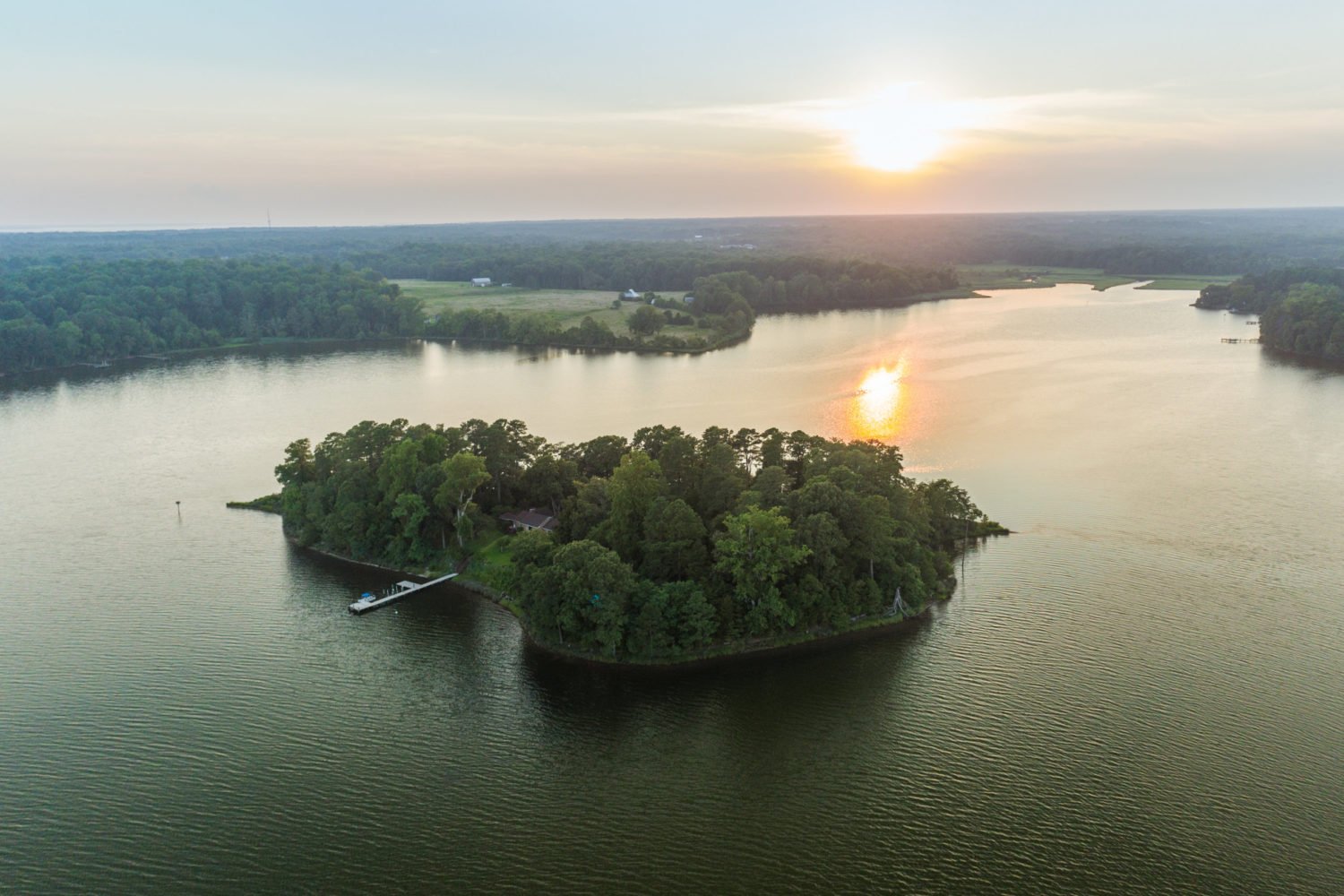In a rare occurrence, there were two manatee sightings in the Chesapeake Bay last week. The gentle animal was first seen swimming in Maryland’s St. Mary’s River on Friday, and then a manatee got caught in a net on Sunday in Virginia’s Northern Neck. (Fear not: The sea cow was rescued by Virginia Marine Police.) It is unclear whether both sightings involved the same animal, but it is a likely scenario considering the close proximity.
It isn’t often a manatee comes our way: The last reported manatee sighting in the area was in 2015. Sea cows enjoy warm water, most often seen swimming in Florida. However, it’s not uncommon to see manatees off the coasts of Georgia and South Carolina as they migrate along the Atlantic shoreline in the summertime. Only a daring few will venture farther.
“Some small number—probably younger animals who are adventurers—are traveling this far north,” says Naomi Rose, a marine mammal scientist for the Animal Welfare Institute. “They’re checking out more territory than the average manatees do. Whether they will thrive in the new habitat is unknown.”
Rose notes that rising water temperatures could lead to more manatees paddling to the Chesapeake Bay. So, what should you do to protect these ambling herbivores?
Manatees’ smooth gray bodies and subtle movements make them difficult to spot underwater, and they only poke their whiskered snouts above the surface every three to five minutes for air. Being aware of their presence and staying alert while on the water are crucial factors for ensuring manatees can safely swim.
“Most people, when they’re out on the water with their small recreational boats, they want to go fast. By the time you notice that you’re on top of a manatee, it’s too late,” says Rose.
If you do spot a manatee nearby, turn off your motor, keep your distance, and don’t feed the wildlife. Rose suggests reporting any sightings to the US Fish and Wildlife Service by calling 1-800-344-9453.
“I would just hope that everybody, even though it’s a Labor Day Weekend, would try to remember that there’s a stranger in town,” Rose says. In other words: Take a lesson from our aquatic tourist and slooow down.

